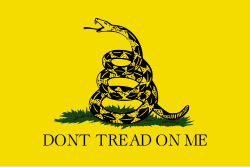SECDEF on applying lessons of the Cold War
Another piece from the DoD EarlyBird news service (can you tell I'm on active duty?):
Donald H. Rumsfeld is U.S. secretary of defense.
Philadelphia Inquirer
March 20, 2006
Applying Lessons Of The Cold War
By Donald H. Rumsfeld
I recently spoke at the library and birthplace of President Harry S. Truman to reflect on his leadership in the early days of the Cold War and to consider what lessons might apply to another - and in many ways very different - struggle that could occupy our country for a good many years ahead.
With the perspective of history, the many new institutions and programs of the Truman years - such as the doctrine of containment, the Marshall Plan, the Central Intelligence Agency, the Department of Defense, and the North Atlantic Treaty Organization - can seem as part of a broadly supported strategy that led to what now almost seems like an inevitable victory in the Cold War.
But, of course, things didn't unfold that way. Our country was tired after the Second World War, and strong strains of isolationism still persisted. Many Americans were not in the mood for global involvement on the part of the United States, particularly against something as ill-defined as the communist menace at the time.
It was a time of heated disagreements. Yet together, leaders of both of our political parties tended to get the big things right. They understood that war had been declared on our country - on the free world - whether we liked it or not, that we had to steel ourselves against an expansionist enemy, the Soviet Union, that was determined to destroy our way of life.
That, I would submit, is our task today in the global war on terror, the struggle against violent extremists. The enemy today is not an empire or a nation, but a shadowy movement of terrorist cells with no territories to defend, no nations, no diplomats to sign agreements, and no hesitance to kill innocent men, women and children.
But these two eras also have something important - and instructive - by way of similarities:
Both required our nation to gird for a long, sustained struggle, punctuated by periods of military conflict.
Both required the use of all elements of national power to defeat the enemy.
Both required a transition from arrangements that were successful in the previous war to arrangements that were much better suited for this new and different era.
One similarity is the critical importance of being able to bolster the capacities of partner nations. This notion was the heart of the Marshall Plan, which cost more than $100 billion in today's dollars, but most certainly helped to save Western Europe from Soviet tyranny and led to the emergence of important democratic allies that, despite our occasional differences, remain indispensable to our success today.
It should be noted that few, if any, of those foreign-policy initiatives won universal acclaim here at home, or abroad for that matter. Indeed, a former diplomat in the closing days of World War II said that "democracy would never work" in Japan. A 1946 Life magazine article was titled "Americans Are Losing the Victory in Europe."
Another similarity that bears mentioning is that both were, and are, fundamentally ideological conflicts - the Cold War and today - challenging free people and free systems of government.
During the Cold War, the Soviets sought to undermine the West by cultivating divisions among our allies, among the countries in the developing world, and among even the American people. Much of the world compared and equated us with the Soviet Union, as though we were each part of the problem.
But leaders over a sustained period met that challenge with something our enemy could never match, and that was powerful demonstration of the attractiveness of free systems.
Just as millions who were trapped in Eastern Europe during the Cold War were given hope by messages that filtered in from the West, similarly, I believe, there are reformers in the Middle East who have been silenced and intimidated and who want their countries to be free. We must reach out to them.
In many ways, many critical battles in the war on terror will be fought in the newsrooms and the editorial board rooms. Unlike the Cold War, this is an era of far more rapid communications, with the Internet, bloggers, and chat rooms, 24-hour news channels and satellite radio.
Let there be no doubt, the United States did not win the Cold War by luck - and our victory was not inevitable. It took perseverance. It took a confidence in our course, despite the many uncertainties and critics both at home and abroad. The same is true in the long struggle our nation faces today and in the years ahead.
Donald H. Rumsfeld is U.S. secretary of defense.





0 Comments:
Post a Comment
<< Home